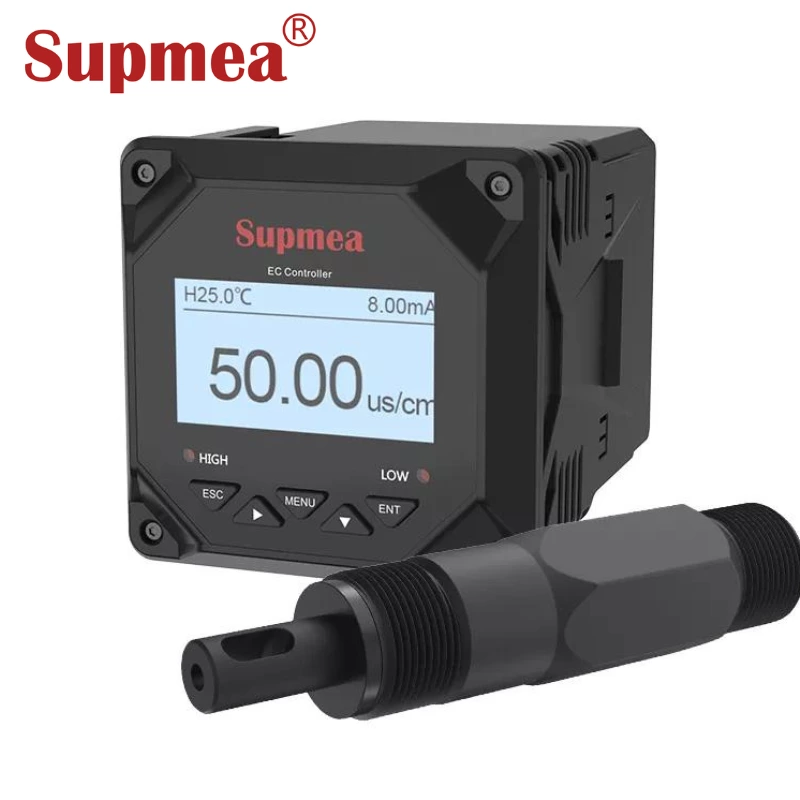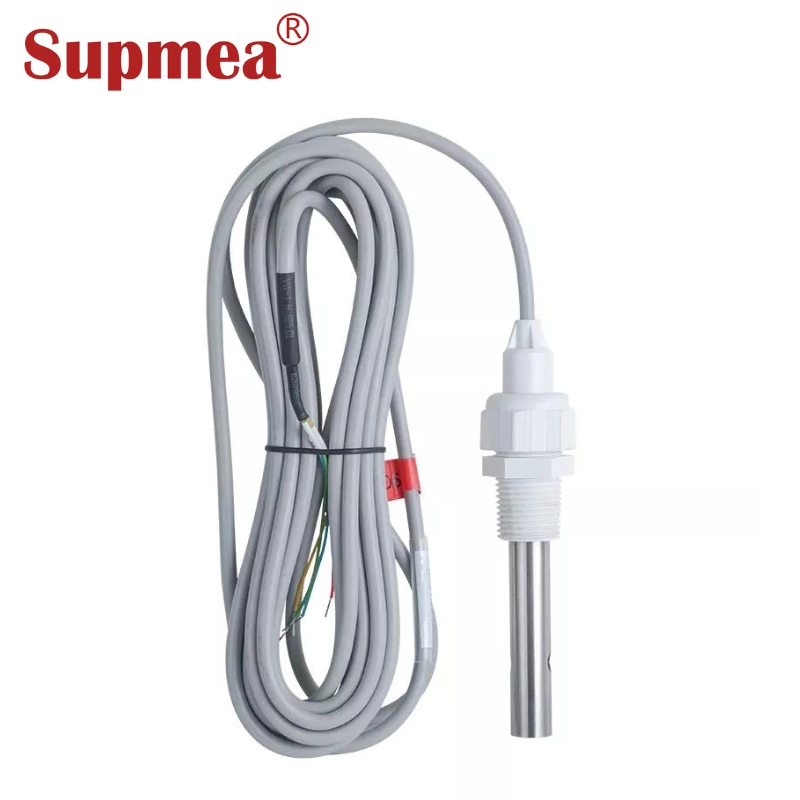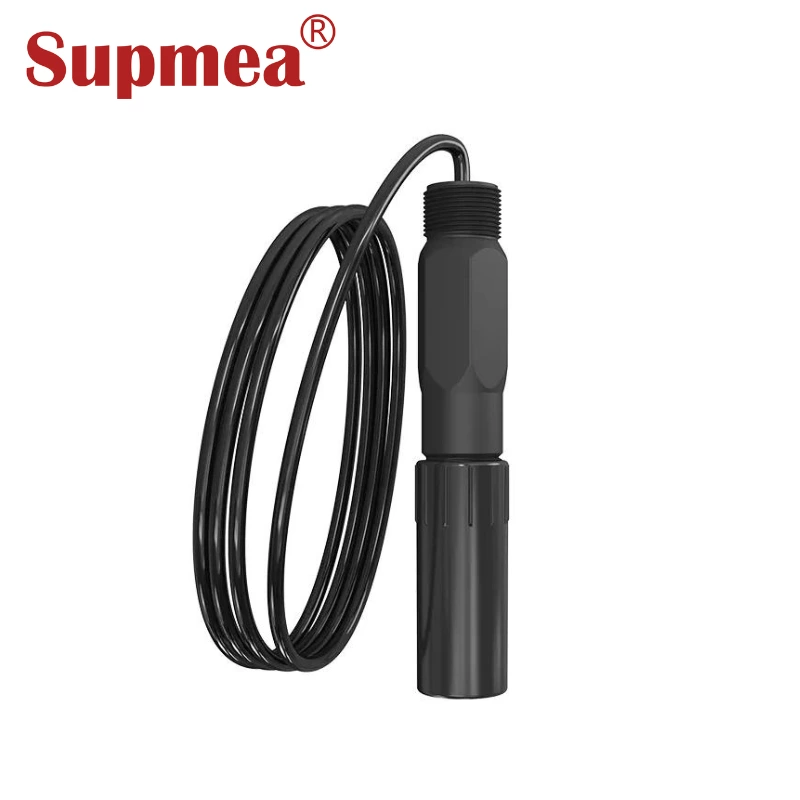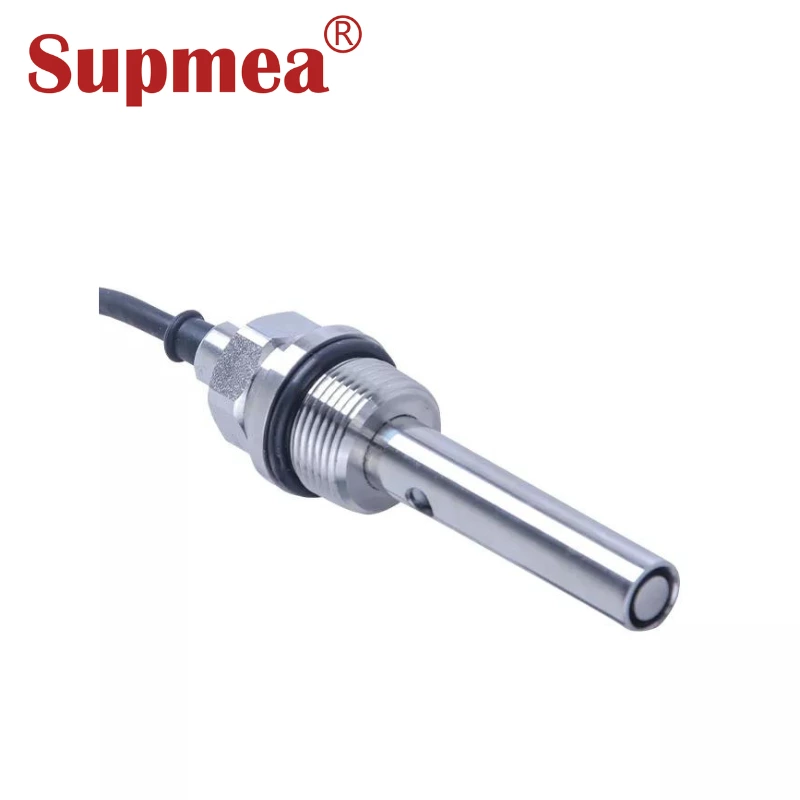Conductivity Electrode For Boiler
What is a conductivity electrode for boilers?
A conductivity electrode is a crucial component in a boiler's water treatment system. It is designed to measure the electrical conductivity of the water in the boiler and provide important information about the level of dissolved salts and other impurities in the water.
The electrode works by measuring the ability of the water to conduct an electrical current. As the concentration of dissolved salts and other impurities in the water increases, so does its conductivity. The electrode sends this information to a controller, which can then adjust the water treatment process as necessary to maintain the desired level of purity.
Maintaining proper water purity is critical for the safe and efficient operation of a boiler. High levels of impurities can lead to corrosion, scale buildup, and other problems that can reduce efficiency and even cause equipment failure. By using a conductivity electrode, boiler operators can ensure that the water treatment process is working effectively and that the boiler is operating at peak performance.
Why do you need a conductivity test for boiler water?
Conductivity testing is a critical aspect of maintaining boiler water quality. It is essential to ensure that the water used in boilers is of the appropriate quality to prevent corrosion and scale buildup, which can lead to equipment failure and costly repairs. Conductivity testing helps to determine the level of dissolved solids in the water, which can impact the overall performance of the boiler.
Boiler water is typically treated with chemicals to prevent corrosion and scale buildup, but these chemicals can break down over time, leading to increased conductivity levels. Conductivity testing allows operators to monitor the effectiveness of the treatment program and make adjustments as necessary.
In addition to preventing equipment failure, maintaining proper water quality through conductivity testing can also improve boiler efficiency. High levels of dissolved solids can reduce heat transfer efficiency, leading to increased energy consumption and higher operating costs. By monitoring conductivity levels, operators can ensure that the boiler is operating at peak efficiency, reducing energy consumption and costs.
Overall, conductivity testing is an essential tool for maintaining boiler water quality and ensuring the efficient and reliable operation of boiler systems. It allows operators to identify potential issues before they become major problems, preventing costly repairs and downtime. By investing in regular conductivity testing, operators can ensure that their boiler systems are operating at peak performance while reducing energy consumption and costs.
What does high conductivity do to a boiler?
High conductivity in a boiler can have several negative effects on its operation. Firstly, it can lead to increased corrosion of the boiler's metal components. This is because high conductivity means that there are more dissolved salts and minerals in the water, which can react with the metal and cause it to deteriorate over time. This can result in leaks, cracks, and other forms of damage that can compromise the safety and efficiency of the boiler.
Secondly, high conductivity can also lead to the formation of scale and deposits on the interior surfaces of the boiler. This can reduce the heat transfer efficiency of the boiler, which means that it will take longer to heat up and will consume more energy as a result. Scale and deposits can also lead to blockages and other issues that can further reduce the performance of the boiler.
In addition to these issues, high conductivity can also lead to increased foaming and carryover in the boiler. Foaming occurs when the water in the boiler becomes saturated with dissolved salts and minerals, which can cause bubbles to form on the surface. Carryover occurs when these bubbles burst and release steam and water droplets into the steam supply. Both of these issues can cause damage to downstream equipment, as well as reduce the quality and safety of the steam produced by the boiler.
It is important to maintain low conductivity levels in a boiler in order to ensure safe and efficient operation. This can be achieved through regular water treatment and monitoring, as well as by implementing appropriate control measures to prevent excessive buildup of dissolved salts and minerals in the boiler water. By doing so, operators can help to ensure that their boilers operate reliably and safely for many years to come.
What is the conductivity range of boiler blowdown?
Boiler blowdown is a common process in which water is discharged from a boiler to remove impurities and prevent the buildup of scale. Conductivity is a measure of the ability of water to conduct an electrical current, and it is often used as an indicator of the level of dissolved solids in the water.
The conductivity range of a boiler blowdown can vary depending on a number of factors, including the type of boiler, the quality of the feedwater, and the frequency of blowdowns. Generally speaking, the conductivity range of a boiler blowdown should be between 2000 and 4000 microsiemens per centimeter (µS/cm). This range ensures that the water being discharged is of sufficient quality to prevent scale buildup and other problems, while also minimizing the amount of water that is wasted.
It is important to note that the conductivity range of a boiler blowdown should be monitored regularly to ensure that it remains within an acceptable range. If the conductivity is too high, it may indicate that the blowdown frequency needs to be increased or that the feedwater quality needs to be improved. Conversely, if the conductivity is too low, it may indicate that the blowdown frequency is too high, which can result in excessive water usage and energy loss.
In summary, the conductivity range of a boiler blowdown should be between 2000 and 4000 µS/cm to ensure that the water being discharged is of sufficient quality to prevent scale buildup and other problems. Regular monitoring of conductivity levels is important to ensure that the blowdown frequency and feedwater quality are appropriate for the specific boiler system.
Supmea Conductivity Electrode
The Supmea Conductivity Electrode is a cutting-edge solution for measuring conductivity in various industrial applications. Designed with precision and accuracy in mind, this electrode provides reliable and consistent readings to ensure optimal performance and quality control.
Crafted from high-quality materials, the Supmea Conductivity Electrode is built to withstand harsh environments and extreme temperatures. Its rugged construction ensures durability and longevity, making it a cost-effective solution for businesses seeking to optimize their operations.
With its advanced technology, the Supmea Conductivity Electrode delivers fast and accurate results, allowing businesses to make informed decisions quickly. Its user-friendly interface and intuitive controls make it easy to operate, even for those with limited technical expertise.
Whether you're working in the chemical, pharmaceutical, or food and beverage industry, the Supmea Conductivity Electrode is an essential tool for ensuring product quality and consistency. With its high level of accuracy and reliability, this electrode is a must-have for any business seeking to optimize their operations and enhance their bottom line.







